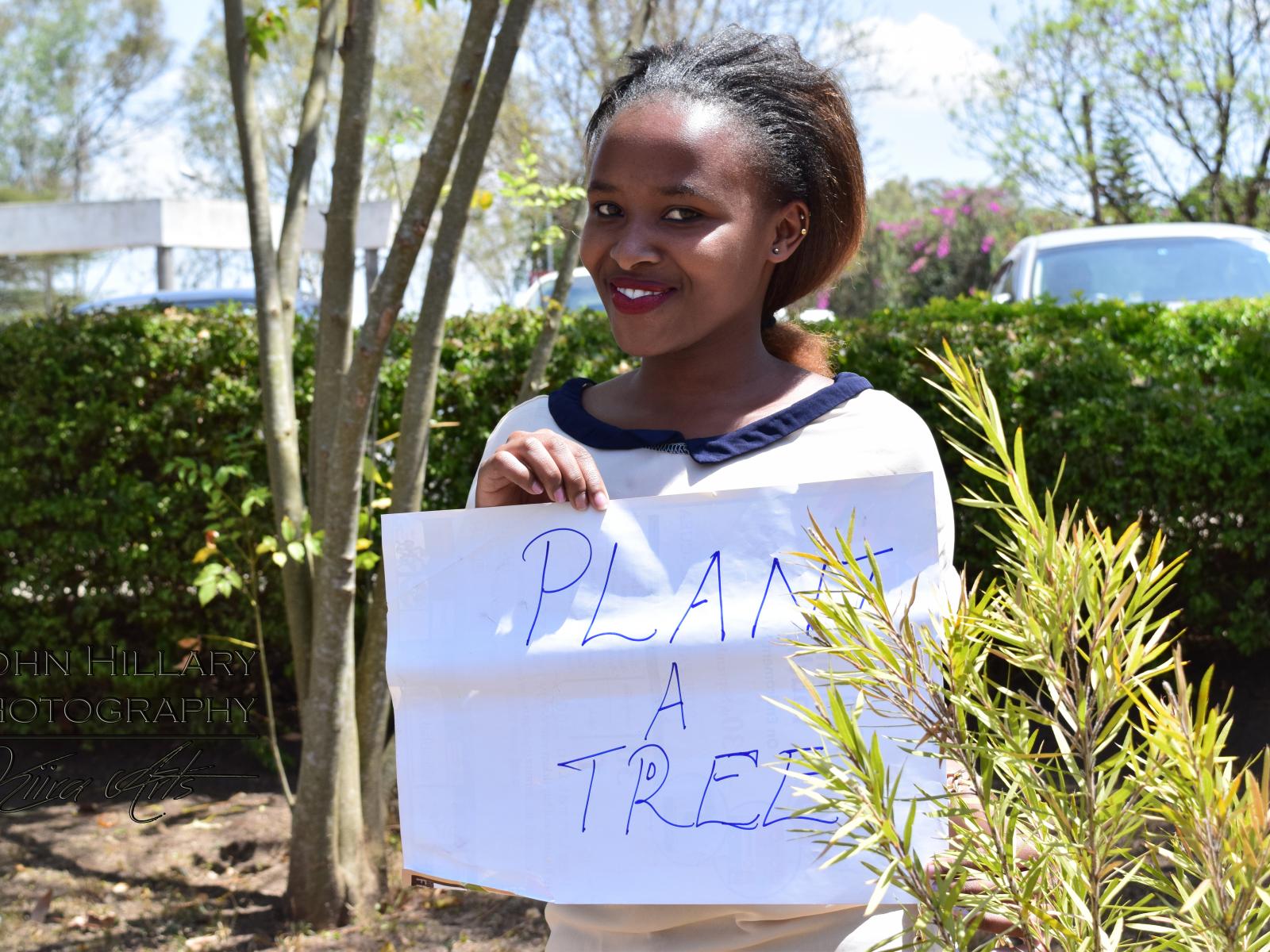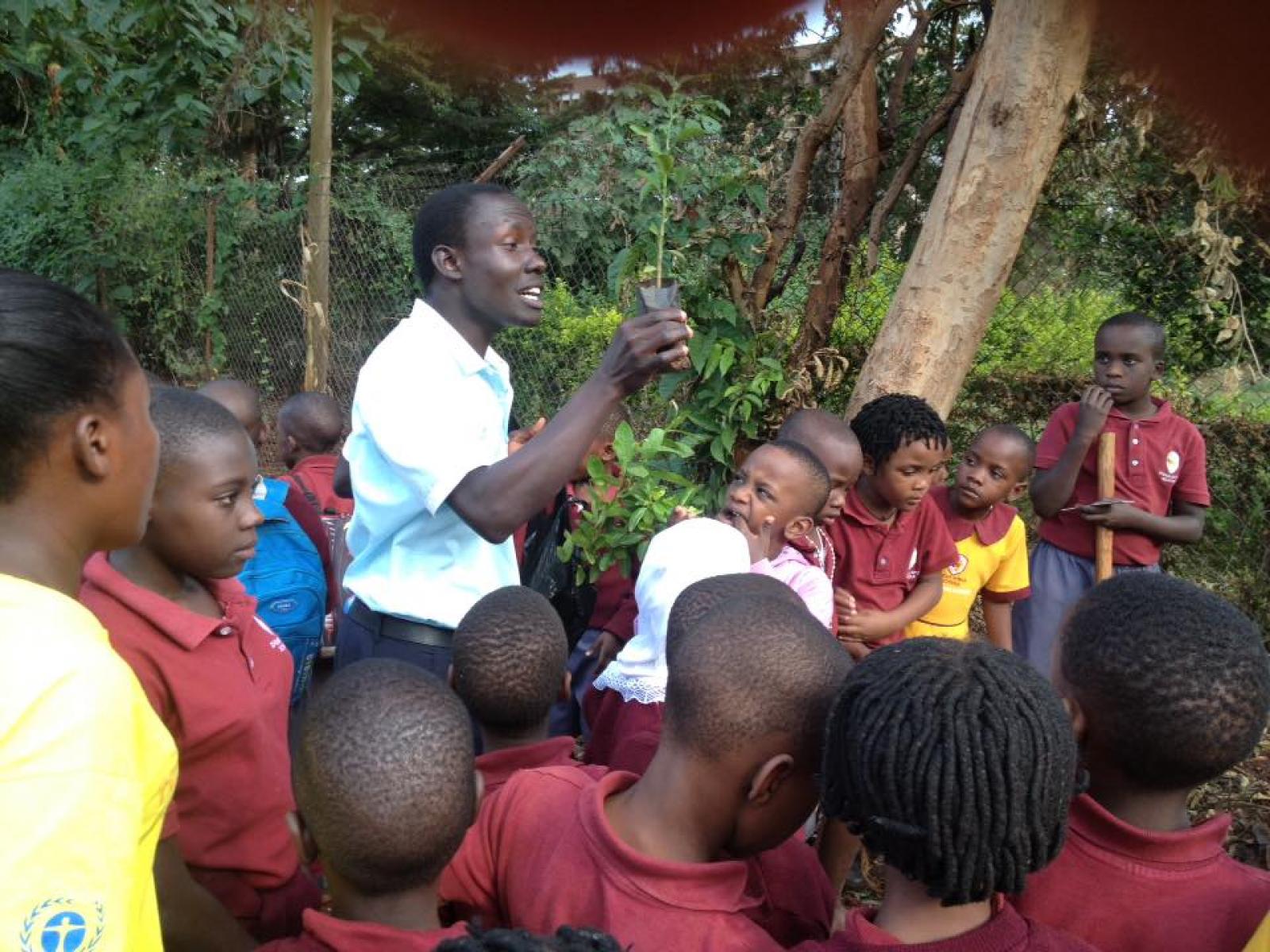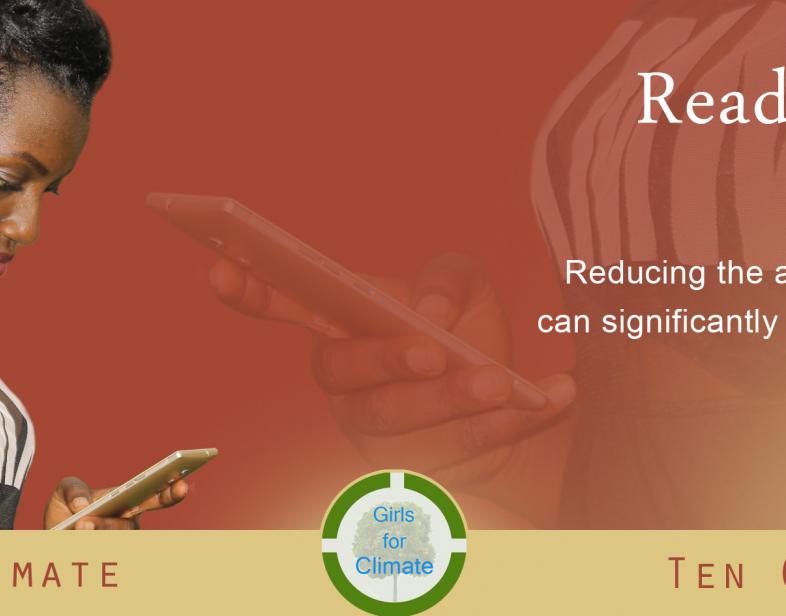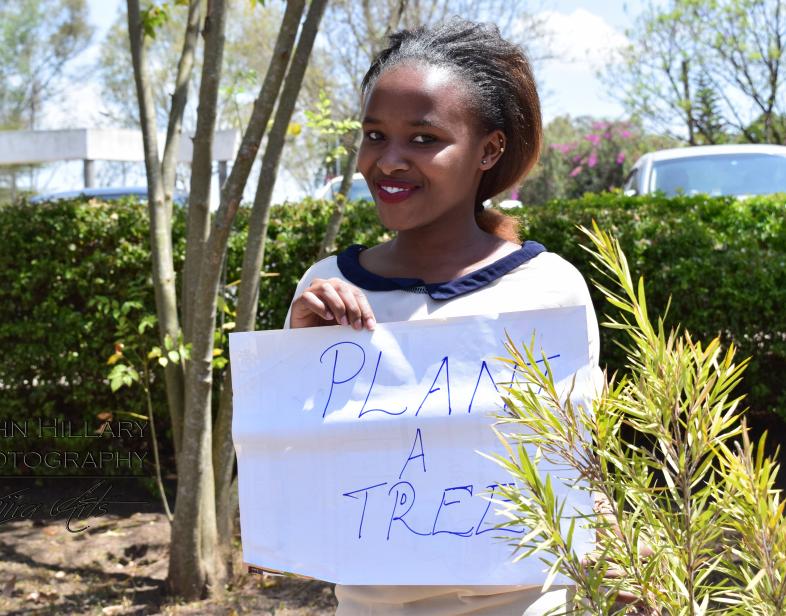An Overview Of Our Solution
In 2016, together with a group of friends started the TEN GREEN CHOICES campaign at the University of Kisubi to encourage the public to adopt an Eco friendly lifestyle so as to reduce their individual carbon footprint. At it initial stages the campaign was mainly characterized with photo shoots featuring influential youth in Kampala and social media campaigns to appeal to the public to adopt an Eco friendly way of life.This led into the birth of the girlsforclimate movement which has now become a climate action movement of not only young people but everyone who associates with the fight against climate change. The ten green choices have also further transformed from simple messages to real action projects. Out of the plant a tree campaign, the girlsforclimate community started the #BirthdayTree campaign were people plant trees on their birthdays.
- Population Impacted: 15,000 People
- Continent: Africa
Context Analysis
Teenagers and young adults are some of the biggest consumers in Uganda today. Their choices have a big impact on Uganda’s carbon footprint. They are also a big influence for social change given their big numbers. The TEN GREEN CHOICES campaign aims at using young people as ambassadors for social and ecological change. The campaign hits people daily life activities.
Encouraging people to plant fruit trees ensures nutrition and availability of food for the people in the near future.
The campaign to promote the adoption of renewable energy ensures sustainable development and we are proud to see so many people embrace solar energy especially in the rural communities that have in the past not had access to national grid.
Describe the technical solution you wanted the target audience to adopt
The campaign calls upon institutions of learning to adopt online paperless learning. An E-learning system was develop and tested by the GirlsForClimate community and the ICT students of the University of Kisubi.
This is aimed at reducing the amount of paper used in classrooms and also the fossil fuels burned in traffic everyday by both students and lecturers making the trip to and from the university.
The Campaign aims at getting universities in the country adopt the an E-learning system to reduce on student and lecturer carbon footprints.
Type of intervention
Describe your behavioral intervention
The campaign aims at creating ethical and mindful consumers. Most people in Kampala and other urban centers in Uganda. The campaign includes:
Pack your water
This is to encourage people to pack their own water and reduce the amount of bottled water that they buy since in many cases they simply dispose off the water bottle and yet when they pack water in their own containers, they will keep the container for a longer time and in turn reduce single use plastic.
Take a taxi (Matatu)
This campaign encourages people to embrace public transport. This reduces the amount of carbon emissions caused by traffic
Reuse and Recycle
This campaign call upon individuals and institutions to consider recycling their waster instead of sending it to the landfill or even just disposing it recklessly
Other include: Go Renewable, Read Online, Buy Local, Plant a tree (Let it Grow)
As needed, please explain the type of intervention in more detail
Our campaign calls for individual and institutional action against climate change. We call upon the public to make Eco friendly choices in their daily lives.
Describe your implementation
Plant a tree (Let it Grow)
Trees absorb huge amounts of carbon from the atmosphere and therefore this campaign aims at getting every individual mindful about the role of trees in fighting climate change. We therefore encourage every individual to plant a tree, ensure that trees grow well and also take care of existing trees. We offer trees to people on their birthdays so that the can consider it valueable
Read Online
The excessive use of paper is another big of pollution around Uganda. This campaign target the elite class especially institutions of learning to adopt the use of online material instead ends up being disposed off in mainly the wrong ways. Developed an E-learning system at the University of Kisubi with the aim of reducing the usage of paper in learning institutions
Reuse and Recyle
Set up a paper recyling plant at Victoria Nile School were waste paper is recyled to make wall notice boards, cardboards and egg trays.
External connections
The Young Franciscans of Uganda and Young Agribusiness Fraternity have been amazing partners in advancing our campaigns.
The University of Kisubi has since 2016 provided a trial ground for us to experiment our E-learning system.
Victoria Nile school has provided us the opportunity for us to set up a mini recycling plant and also teach the little ones environmental principles
Who adopted the desired behaviors and to what degree?
Victoria Nile School in Jinja has now set up a small recycling plant were most of the paper is recycled to and used to create wall notice boards. The ICT community at the University of Kisubi now uses an E-voting system and is advocating for the use of the newly developed E-learning system so as to cut on the use of paper at the university
How did you impact natural resource use and greenhouse gas emissions?
Over the past two years we have planted over 4700 trees in kampala and Jinja under our #BirthdayTree sub campaign. We have significantly reduced single use plastic in many urban centers with our reusable bags.
What were some of the resulting co-benefits?
Have trained climate captains in simple climate science and they advance the knowledge to the rest of the community. Created an E-learning system that can be further developed to meet other needs
Sustainability
The Campaign sustainability relies on market-based revenue. The GirlsForClimate community now creates reusable shopping which are sold around major towns in the country. This has been the major source of income that has kept the campaign running.
The Campaign also relies on personal funding from volunteers who believe in it. Some of the resources we get volunteers include tree seedlings and manpower.
Return on investment
Last year The GirlsForClimate community invested 3500,000 UGX(875USD) in production of reusable shopping bags and realized a profit of 1370,000 UGX(343USD) from sales.
How could we successfully replicate this solution elsewhere?
Reusable bags can easily be customized to fit in any society.






